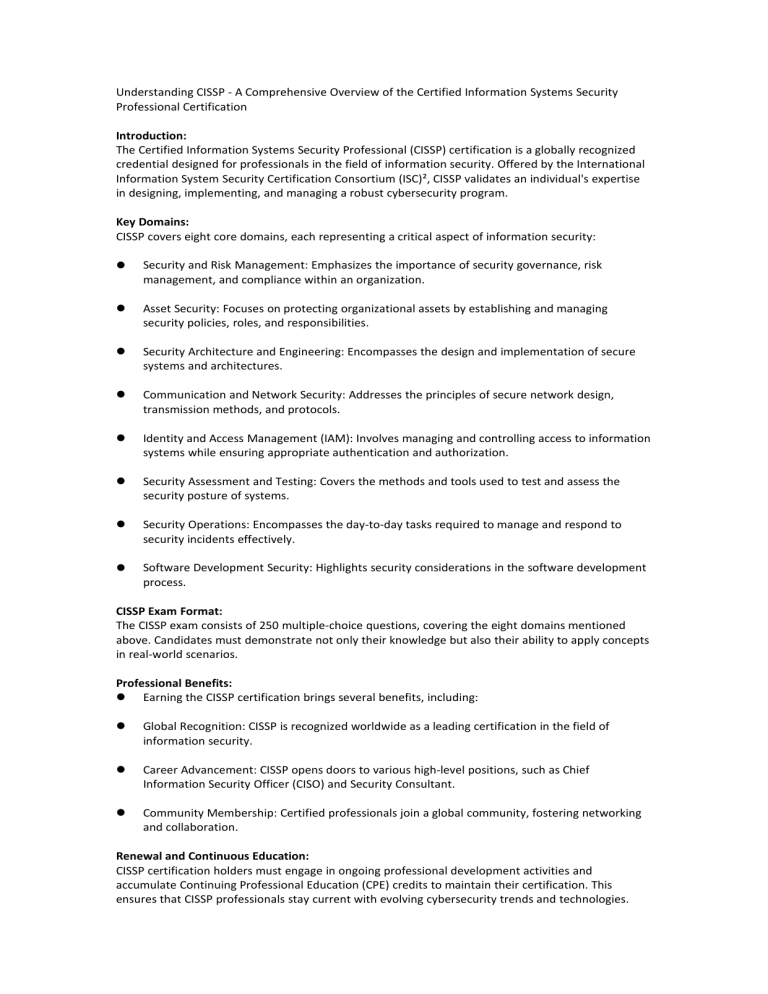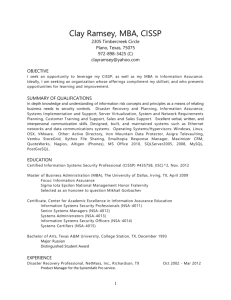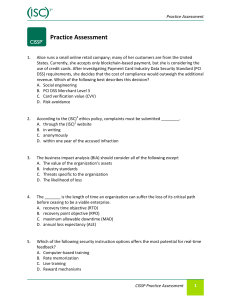
Understanding CISSP - A Comprehensive Overview of the Certified Information Systems Security Professional Certification Introduction: The Certified Information Systems Security Professional (CISSP) certification is a globally recognized credential designed for professionals in the field of information security. Offered by the International Information System Security Certification Consortium (ISC)², CISSP validates an individual's expertise in designing, implementing, and managing a robust cybersecurity program. Key Domains: CISSP covers eight core domains, each representing a critical aspect of information security: Security and Risk Management: Emphasizes the importance of security governance, risk management, and compliance within an organization. Asset Security: Focuses on protecting organizational assets by establishing and managing security policies, roles, and responsibilities. Security Architecture and Engineering: Encompasses the design and implementation of secure systems and architectures. Communication and Network Security: Addresses the principles of secure network design, transmission methods, and protocols. Identity and Access Management (IAM): Involves managing and controlling access to information systems while ensuring appropriate authentication and authorization. Security Assessment and Testing: Covers the methods and tools used to test and assess the security posture of systems. Security Operations: Encompasses the day-to-day tasks required to manage and respond to security incidents effectively. Software Development Security: Highlights security considerations in the software development process. CISSP Exam Format: The CISSP exam consists of 250 multiple-choice questions, covering the eight domains mentioned above. Candidates must demonstrate not only their knowledge but also their ability to apply concepts in real-world scenarios. Professional Benefits: Earning the CISSP certification brings several benefits, including: Global Recognition: CISSP is recognized worldwide as a leading certification in the field of information security. Career Advancement: CISSP opens doors to various high-level positions, such as Chief Information Security Officer (CISO) and Security Consultant. Community Membership: Certified professionals join a global community, fostering networking and collaboration. Renewal and Continuous Education: CISSP certification holders must engage in ongoing professional development activities and accumulate Continuing Professional Education (CPE) credits to maintain their certification. This ensures that CISSP professionals stay current with evolving cybersecurity trends and technologies. Conclusion: CISSP certification is a key milestone for individuals seeking to establish themselves as experts in information security. With its comprehensive coverage of essential domains and emphasis on practical application, CISSP remains a valuable credential in a constantly evolving cybersecurity landscape.











